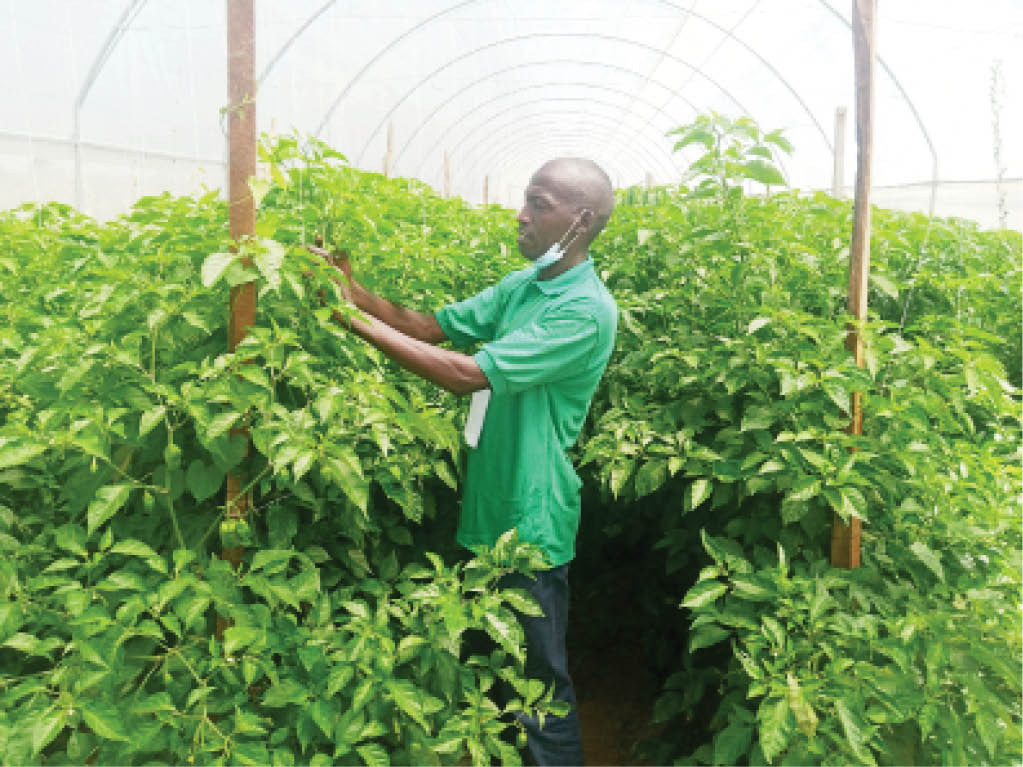Since the call by President Muhammadu Buhari for Nigerians to go back to farming, more Nigerians are investing and developing new approach to the nation’s agriculture.
One of the farms introducing new approach to the way agriculture is practised in Nigeria is the Shabu Integrated Farms, a subsidiary of Al’Hakam Holdings Ltd, covering about 200,000 hectares.
The farm, which is located in Shabu, a farming community in Agwada, Kokona Local government of Nasarawa State, is owned by Senator Abdullahi Adamu, the current chairman, Senate Committee on Agriculture.
Although the land was acquired in 1982, commercial agriculture started recently with the introduction of innovations and technologies to mechanised production activities.
The farm was also designed to create an environment that would enable young, emerging and innovative farmers to also acquire practical production knowledge like the Songhai Farm model in Benin Republic.
Two weeks ago, during the launch of the Agriprenuer Academy, our reporter who went round the farms gathered that the academy is inculcating an extension service delivery knowledge system for modern agricultural production.
The field manager in charge of crop production, Suleiman Shehu Dibiya, told Daily Trust on Sunday that the farm was working towards expanding the production of the arable crops like maize, soybeans, roots and tuber crops (cassava and yams) and horticultural crops like banana, plantain, oil palm production including oil crops like sesame.
He said that apart from servicing their subsidiaries, there are other companies that off-take their products, and the demand is growing.
The farm is also growing the horticultural crops like plantain, which is rarely produced in commercial quantities anywhere in the North, except hundreds of smallholder farmers scattered in southern and western Nigeria.
With a growing demand and consumption, the farm will seek to take a larger share of the market in northern Nigeria when fully developed.
Aside crop production, Rahama Fish Farm Ltd, a subsidiary of the group, which has an entire value chain flow system, from hatchery production to processing and packaging, including pelletised fish feed mill, is a major part of the integrated farms.
Mr Peter Daniel Ojoagefu, who is the general manager of the farm, explained that it would expand to other areas of the fish value chain shortly.
But at the moment, it has 30 big concrete ponds that have a capacity of about 300,000 fish per cycle of production with an annual production capacity of over 100 metric tonnes of processed fish with expansion drive in the pipeline.
Mr Ojoagefu said the farm had concluded plans to stock supper white Tilapia species in the coming weeks.
The farm has a hatchery, which has the capacity of thousands of fingerlings per production and will soon serve other farmers in and around the state.
The manager of the fish farm said they were mindful of the growing demand for processed fish, which is why he said the farm built its smoking chamber.
Although he said the cost of feed, which takes about 70 to 75 per cent of the cost of fish production, was a huge challenge, they had been able to stay afloat with their own feed formulation.
In the area of vegetables and spices, the farm is also investing in the greenhouse production of various vegetables targeted at major consumers in and around Abuja.
Mr Aliyu Muhammed, the agronomist in charge of the greenhouse project, who took our reporter round, explained that they were working to expand the current four greenhouses for more production.
He said with two basic varieties of tomato and other crops like pepper, they had been able to register their presence in most of the major malls and hotels in Abuja, the nation’s capital.
Each greenhouse has an area of 8 by 48 metres, containing 900 stands of crop each at a spacing of 60 by 30 centimetres. There are 6 beds in each greenhouse.
Although Senator Adamu already has Nagari Dairy Farm in Keffi, a ranch was also built into the Shabu Integrated Farms model in order to look at agriculture holistically and have every section of the sectors in one place like the Songhai model. This, according to the farm, will benefit the various students of the academy.
In the area of mechanisation, the farm has significant machinery to mechanise its operations. It has a number of tractors, combined-harvesters, threshers, and so on.
What the farm seems to be doing differently from other commercial farms in the country is the establishment of non-for-profit agriprenuer academy, which has an array of experts, including academic professors in different fields of agriculture ready to provide not only practical trainings to farmers at all levels but to also serve as a vital ground for an on-farm policy retreat environment.
The director of the academy, Professor Maikano Mohammed Ari, an animal production expert, said the academy would address the critical hands-on experience gap in the nation’s agriculture, something Senator Adamu calls “learning-by-doing” for many and intending farmers.
“The second area is that in this farm, you have seen a massive investment in equipment and machineries. No matter how you try as an institution, university or research centre, you can hardly have these.
If we must train our students to be able to compete effectively and contribute to the growth of the agric sector, we must be able to give them a hands-on experience on this kind of equipment; that is modernisation. So, the only way they would have this is for them to come for programmes in this kind of environment,” Professor Ari said.
He said the academy would allow academics and researchers take time out to enjoy the serenity of the environment to engage in research, adding, “Right now at the farm, we are doing herbicide application trial.”
Senator Adamu, a former governor of Nasarawa State, said his strong passion for agriculture, despite his training as an engineer and lawyer, led him to invest more in the sector.

 Join Daily Trust WhatsApp Community For Quick Access To News and Happenings Around You.
Join Daily Trust WhatsApp Community For Quick Access To News and Happenings Around You.


